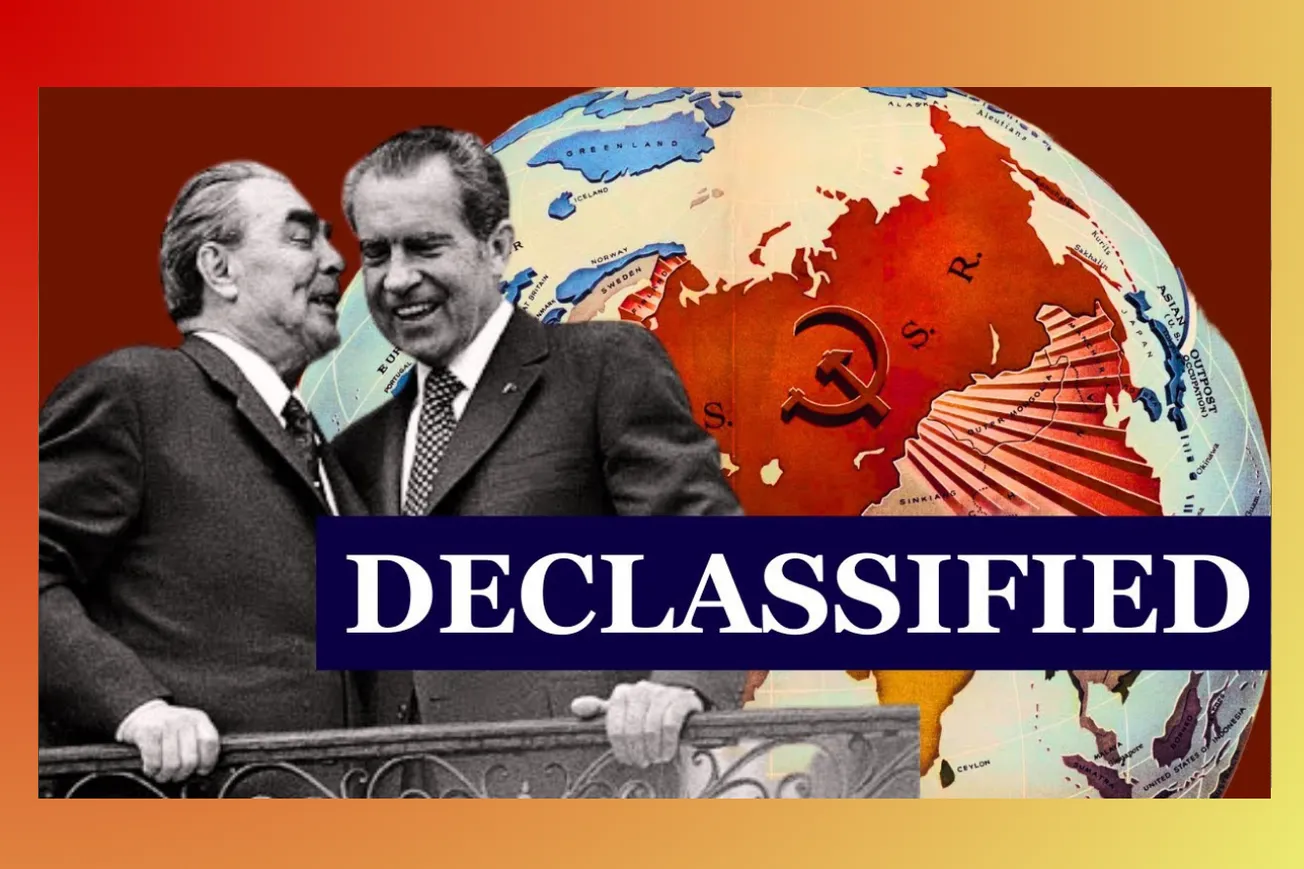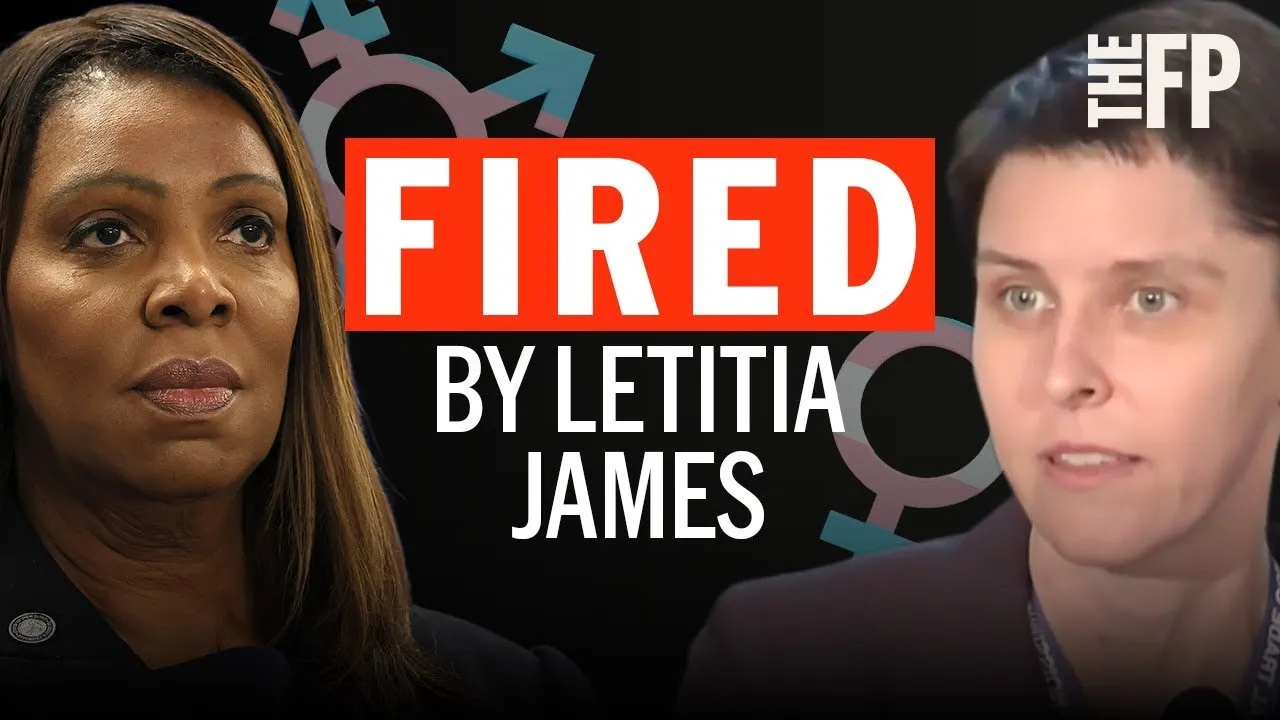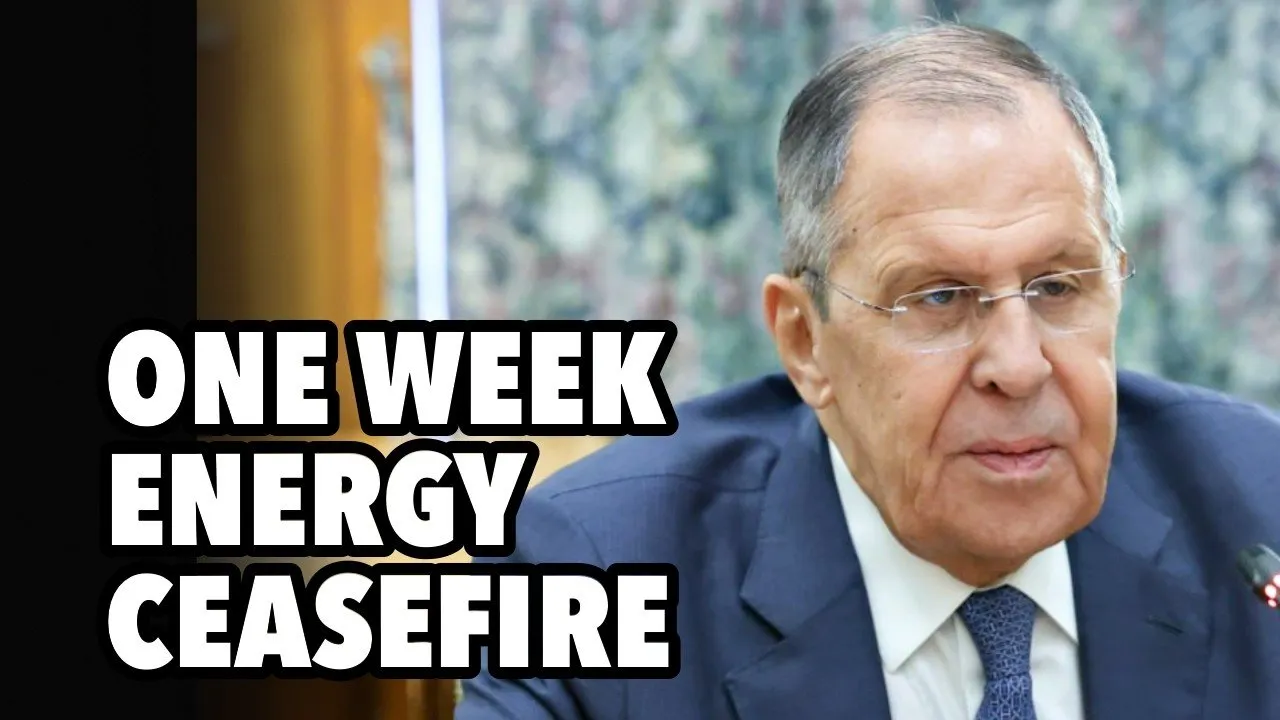Table of Contents
Historian Sergey Radchenko reveals how the bitter rivalry between communist superpowers shaped the Cold War more than East-West tensions, offering crucial lessons for managing today's strategic competition with China and Russia.
Key Takeaways
- The Vietnam War was primarily a proxy battle between the Soviet Union and China for leadership of the communist world, not just an American conflict
- Brezhnev's foreign policy was driven by a desperate need for recognition as America's equal, leading him to propose that the superpowers "run the world together"
- Mao called Nixon "the number one best fellow in the world" while Chinese Red Guards nearly lynched the Soviet ambassador - ideology proved secondary to strategic rivalry
- Both communist powers were willing to abandon Marxist principles to align with the United States against each other, revealing the primacy of geopolitical competition
- The Soviet invasion of Afghanistan stemmed from fear that another client state would "do a Sadat" and switch to the American side
- Personal psychology and prestige-seeking drove major policy decisions, from Khrushchev's Cuban missile gambit to Gorbachev's pursuit of "greatness before history"
- Today's containment dilemma with China mirrors the Stalin paradox: we don't know if accommodation would satisfy Xi Jinping or encourage further expansion
- Respectful firmness combined with clear signaling offers the best approach to managing great power rivals whose ultimate intentions remain unknowable
Khrushchevism Without Khrushchev: The Persistence of Policy
When Nikita Khrushchev was unceremoniously removed from power in October 1964, the Chinese had a phrase ready: "Khrushchevism without Khrushchev." This wasn't mere wordplay - it captured a fundamental truth about how policy momentum can outlast individual leaders, a lesson with profound implications for understanding both historical and contemporary great power competition.
As Sergey Radchenko explains, "The Chinese invented this. They were unhappy with the way that the Soviets continued in their eyes to pressure China to adopt policies that the Chinese deemed unacceptable." Despite Khrushchev's removal, the underlying Soviet approach toward China remained unchanged, creating continuity that transcended leadership transitions.
This dynamic reveals something crucial about great power rivalry: institutional momentum often proves more durable than personal relationships. Khrushchev had become "Soviet foreign policy" in his final years, making decisions "single-handedly without consulting anybody" including sending missiles to Cuba. Yet when he fell, the policies he'd established toward China persisted under new leadership.
- Khrushchev's anti-Chinese policies survived his political demise
- New Soviet leadership felt constrained by existing policy frameworks
- Institutional momentum created path dependency in foreign relations
- Personal diplomatic relationships proved less important than structural competition
- Policy continuity occurred despite significant leadership changes
The transition to Leonid Brezhnev illustrates how new leaders often feel "out of their depth" when inheriting complex foreign policy challenges. Brezhnev "feels not entirely confident of himself, certainly not in foreign policy, and he consults with others the way that Khrushchev never did." This uncertainty created opportunities for bureaucratic interests to shape policy in ways that wouldn't have occurred under more decisive leadership.
Vietnam: The Forgotten Sino-Soviet Proxy War
The most revealing aspect of Radchenko's research concerns how Vietnam became a battleground for Sino-Soviet competition rather than simply an American war. This reframing fundamentally changes our understanding of the conflict and offers crucial insights about how great powers compete through third parties.
"For the Soviets, it was not even so much about the American involvement in Vietnam. That's not what drove them crazy," Radchenko explains. "What the Soviets were really worried about was their competition with China and how Vietnam figured in that." This wasn't primarily about containing American imperialism - it was about who would lead the communist world.
The competition played out through competing visions of revolutionary strategy. Mao advocated for prolonged struggle, telling Vietnamese leaders that American invasion wasn't a big deal because "you have green hills in Vietnam and you can go into the green hills and there's always firewood there." The Soviets, by contrast, counseled negotiation and eventual peace talks with the Americans.
The mechanics of Sino-Soviet competition in Vietnam:
- Aid as Influence: Both powers provided substantial assistance to demonstrate their commitment to allies
- Logistical Warfare: Chinese interference with Soviet weapon shipments created chronic tensions
- Ideological Export: China attempted to promote Cultural Revolution ideas in Vietnam during the conflict
- Strategic Advice: Competing counsel on whether to fight or negotiate with the United States
- Legitimacy Stakes: Success in Vietnam would validate each power's approach to world revolution
The Vietnamese found themselves caught between competing patron states, "telling the Chinese, 'Oh, yeah, we admire Chairman Mao, you're so wise'... On the other hand, thinking, 'Oh, we need Soviet aid because we need their weapons to fight against the Americans.'" This balancing act became increasingly difficult as Chinese domestic politics radicalized during the Cultural Revolution.
Perhaps most importantly, Vietnamese leaders "really hated" Chinese attempts to export Cultural Revolution politics to Vietnam. "If you imagine being a Vietnamese at this point fighting this war against the Americans and the Chinese come with their crazy radical ideas and red guards and whatnot. That is not something that's going to sell with the Vietnamese communist party leadership very well."
Border Wars and Nuclear Threats: When Communists Nearly Fought World War III
The Sino-Soviet split escalated from ideological disagreement to the brink of nuclear war during the Ussuri River border conflict of March 1969. This confrontation reveals how quickly great power competition can spiral toward catastrophic outcomes, even between nominally allied nations sharing the same ideology.
The fighting occurred over "this little island that is actually closer to the Chinese side of the Ussuri River. So, the Chinese have actually reasonable claim, but they fight a war over this island and then the Soviets make noises about a potential preemptive nuclear strike on China." This wasn't mere saber-rattling - both sides genuinely feared invasion by the other.
The psychological impact on both leaderships was profound. "The Chinese, by the way, are afraid of the Soviet invasion... They're paranoid. They think the Soviets are basically ready to spread, you know, to do the Czechoslovak kind of operation 1968 all over again by 1969." Meanwhile, "The Soviets, by contrast, are thinking that the Chinese are going to invade Siberia."
- Border disputes escalated to military conflict despite shared ideology
- Nuclear threats became serious policy options rather than mere deterrence
- Paranoia and misperception drove both sides toward confrontation
- Geographic proximity amplified rather than reduced tensions
- Each side feared existential threats from their former ally
A Soviet-era joke captured the absurdity: "The war between the Soviet Union and China lasted for only two days. So on the first day, the war is declared and on the second day the Chinese surrender and 100 million Chinese cross over the border as prisoners of war. And then the Soviet Union declares unconditional capitulation." The humor masked genuine terror about China's demographic advantage in any prolonged conflict.
This period saw Brezhnev develop what Radchenko describes as deeply racist attitudes toward China, drawing from "19th century Russian orientalist literature" to justify his hostility. The irony is striking: a communist leader embracing czarist-era racial theories to explain his conflict with fellow communists.
The Brezhnev Doctrine of Superpower Equality
Perhaps the most fascinating aspect of Brezhnev's leadership was his obsession with gaining American recognition of Soviet equality. This wasn't just about military parity or spheres of influence - it was a psychological need for validation that shaped major policy decisions and offers important insights about how great powers seek legitimacy.
The famous "run the world together" conversation occurred during a hunting trip with Henry Kissinger in spring 1973. As Radchenko recounts, "Brezhnev took him hunting boars... they were in this hunting tower just Kissinger and the interpreter and they were waiting for pigs to come and feed so they could shoot them dead." In this informal setting, Brezhnev made his remarkable proposition: "What we want to do is we want to run the world together with the United States."
This wasn't mere diplomatic rhetoric. Brezhnev genuinely believed that superpower cooperation could solve global problems while validating Soviet greatness. He would tell Nixon that "the Soviet Union and the United States together had enough nuclear weapons to destroy the world six, seven, eight times over" and therefore "had a responsibility to fix the world."
The psychology behind Brezhnev's equality obsession:
- Economic Reality: The Soviet economy was failing, undermining ideological promises of abundance
- Legitimacy Crisis: Communism's material promises were obviously unfulfilled by the late 1960s
- External Validation: American recognition could substitute for domestic achievement
- Peace as Legacy: Brezhnev saw himself as a peacemaker leader deserving historical greatness
- Practical Partnership: Joint superpower management could contain Chinese radicalism and other threats
The tragedy of this approach was its internal contradiction. As Radchenko notes, "Being accepted as America's equal meant rejecting external constraints on foreign policy behavior. What sort of equality would you talk about then if you couldn't, you know, have proxy wars or missiles in Cuba?" True equality required the freedom to act like a superpower, which necessarily brought conflict with American interests.
Nixon: The Unlikely Communist Favorite
One of the most counterintuitive aspects of the triangular diplomacy period was how both communist powers gravitated toward Richard Nixon despite his anti-communist credentials. This preference reveals something important about how authoritarian leaders often prefer dealing with fellow "strongmen" rather than ideologically sympathetic but unpredictable democratic politicians.
Mao's embrace of Nixon was particularly striking. In conversations with Edgar Snow, "Mao says we think that Nixon is a good fellow and Edgar Snow is like... okay well that's a strange thing to say... And then Mao repeats himself, 'Well, no, no, you know, we think he's the best fellow in the world.'" This wasn't sarcasm - Mao genuinely preferred Republicans to Democrats because "he finds the Republicans more trustworthy because although they're reactionary... at least you always know where they stand."
The Soviet attraction to Nixon was equally strong but developed differently. Initially dismissive of Nixon, Brezhnev changed his tune after learning about Kissinger's secret trip to Beijing. "Oh my god... the Americans are now the Chinese are our enemies their Americans are going there so this is really bad so we have to get Nixon to come to Moscow." The resulting 1972 Moscow summit began a genuine friendship between the two leaders.
Both communist leaders developed deep attachments to Nixon that survived even Watergate. Neither Mao nor Brezhnev could understand how Americans could remove such a "wonderful president who is creating détente and who's bringing the cold war to an end." Brezhnev even ordered the KGB to find compromising material on Nixon's opponents to help save his presidency.
- Authoritarian leaders preferred dealing with Nixon over Democratic alternatives
- Ideological differences proved less important than personal relationships and perceived reliability
- Both Mao and Brezhnev saw Nixon as more trustworthy than liberal politicians
- Communist leaders couldn't comprehend American democratic accountability processes
- Personal diplomacy temporarily overcame systematic ideological conflicts
This pattern suggests that authoritarian leaders often misunderstand democratic systems, assuming that strong personal relationships with individual leaders can override institutional constraints and public opinion.
Quote Analysis: The Paradox of Superpower Psychology
Two quotes from Radchenko's interview capture essential truths about how great power leaders think about status and competition:
"What we want to do is we want to run the world together with the United States... How do you even explain that from a Marxist Leninist perspective? That doesn't make any sense. It doesn't make any sense. But it does make sense from the idea of selling the Soviet greatness to the Soviet people. The Americans, they're recognized us as a great power. Therefore, we're a great power."
This quote reveals the primacy of status over ideology in great power competition. Brezhnev's willingness to abandon Marxist-Leninist principles for American recognition shows how external validation can become more important than internal consistency. The psychological need for respect and acknowledgment from rivals often trumps ideological commitments, suggesting that today's competition with China may be more about status than values.
"We simply don't really know what the other side wants. Does Xi Jinping want to overturn the existing order or is he just trying to change China's position in this global order?... We don't know whether Xi himself knows... whether he himself has decided what he wants to do."
This observation captures the fundamental uncertainty that characterizes great power competition. Even with extensive intelligence capabilities and historical analysis, understanding adversary intentions remains elusive. Leaders themselves may not know their ultimate goals, making strategic planning extremely difficult. This uncertainty paradox affects both historical and contemporary policy-making, suggesting that flexibility and adaptability matter more than rigid strategic frameworks.
Afghanistan: The Sadat Syndrome
The Soviet decision to invade Afghanistan in December 1979 illustrates how great powers can make catastrophic decisions based on fear of losing clients rather than pursuing clear strategic objectives. Radchenko's archival research reveals that the invasion wasn't about grand strategy but about preventing another humiliating defection like Egypt's turn toward the United States.
The key factor was the "Sadat syndrome" - Soviet paranoia about losing clients to American influence. "They lost Sadat in Egypt. President Sadat, who was supposed to be kind of a pro-Soviet client, but they basically dumped them because he decided that he would go with Kissinger and Nixon and basically the Soviets got outplayed in Egypt."
After Egypt's defection, "the Soviets just look at almost every country in the Middle East as potentially another Egypt. And Afghanistan is exactly that." When Hafizullah Amin killed his predecessor Nur Muhammad Taraki, the Soviets became convinced that Amin "has some kind of ties with Americans" and would "potentially sell them out and the Americans would then come into Afghanistan."
The flawed logic of the Afghan intervention:
- Precedent Paranoia: Egypt's defection created fear that all clients were unreliable
- Zero-Sum Thinking: Any client loss was automatically seen as American gain
- Preventive Action: Better to intervene than risk another Sadat scenario
- Misread Intelligence: Suspicions about Amin's American contacts drove policy more than facts
- Bureaucratic Momentum: With Brezhnev declining mentally, institutional interests dominated decision-making
The invasion demonstrated how great powers can make disastrous decisions when driven by fear of losing face rather than clear strategic calculations. The need to appear strong and reliable to remaining clients overrode rational analysis of costs and benefits.
Gorbachev's Pursuit of Historical Greatness
Mikhail Gorbachev's rise to power represents perhaps the clearest example of how personal psychology and the pursuit of historical legacy can drive world-changing decisions. As Radchenko observes, Gorbachev "had everything in 1985, an empire, however decrepit, an ideology, however stale. Above all, an office and a truly awesome power. What he did not have was greatness as he chose to understand it. Greatness before history."
This psychological insight helps explain why Gorbachev pursued reforms that ultimately destroyed the system he inherited. Economic necessity played a role - the Soviet system was clearly failing by the 1980s - but Gorbachev's personal ambitions went far beyond mere economic reform. He wanted to be remembered as someone who "would bring the Soviet idea to life for the first time because he thought that his predecessors never made it work."
The scope of Gorbachev's ambitions was remarkable. His book "Perestroika" had the subtitle "for our country and for the world - he was trying to restructure the entire world and not just his own country." This messianic vision drove him to make concessions that more pragmatic leaders might have avoided.
The parallel with other historical figures is striking. "Think about Mao in let's say 1965. He had all the power in his hand. He could do anything... And yet he continued this cultural revolution for what? For legacy, for this greatness before history." The same dynamic applies to Putin's invasion of Ukraine - "he has all the power in his hand and he's doing this... for greatness before history the way he understands greatness."
- Personal legacy concerns can override rational strategic calculations
- Leaders with enormous power often seek something greater than what they possess
- Historical greatness becomes an end in itself, independent of practical benefits
- Boredom and the need for meaning drive risky decisions among long-serving autocrats
- The "hedonic treadmill" effect applies to political power as much as personal wealth
This pattern suggests a fundamental challenge in great power competition: leaders who have achieved ultimate domestic power may seek external validation or historical significance in ways that disrupt existing balances.
The Reagan Exception: How Personal Chemistry Shaped History
Ronald Reagan's relationship with Gorbachev offers a fascinating counterpoint to the general pattern of superpower rivalry driven by prestige and paranoia. Reagan's approach combined firmness with genuine engagement, creating space for Gorbachev's reform impulses while maintaining American strategic advantages.
Radchenko emphasizes that "the Americans were quite worried about Gorbachev to begin with" because "they thought that he could actually succeed in what he claimed to be doing. Reinvent the Soviet idea and make the Soviet Union into much more serious competitor." This concern was well-founded - a successfully reformed Soviet Union could have posed a far greater challenge than the stagnant system Reagan inherited.
However, Reagan possessed something his predecessors often lacked: "that belief in the importance of avoiding nuclear war in the great responsibility that was on his shoulders." Unlike leaders focused primarily on winning the Cold War, Reagan genuinely believed that "nuclear war has to be avoided and we have to talk to the Soviets."
The Reykjavik summit of 1986 represented the culmination of this approach. There "came this remarkable moment... where they talked about abolishing nuclear weapons altogether right it was quote unquote almost decided to the horror of Reagan's advisers." This willingness to pursue radical arms reduction, even at the risk of disappointing allies and advisers, demonstrated Reagan's commitment to peace over purely competitive advantage.
Elements of Reagan's successful approach:
- Personal Engagement: Developed genuine working relationship with Gorbachev despite ideological differences
- Strategic Patience: Maintained pressure while creating space for Soviet reform
- Nuclear Realism: Prioritized avoiding nuclear war over scoring competitive points
- Flexible Firmness: Combined military buildup with serious arms control negotiations
- Historical Perspective: Understood that transformation was possible given the right conditions
The Reagan-Gorbachev relationship suggests that personal chemistry and shared concerns about catastrophic risks can sometimes overcome structural competitive dynamics, at least temporarily.
The Containment Paradox: Lessons for Contemporary Strategy
The historical patterns Radchenko identifies have direct relevance for today's strategic competition with China and Russia. The fundamental challenge he calls the "containment paradox" - borrowed from Henry Kissinger's 1957 observation - remains as relevant today as it was during the original Cold War.
"The powers which represent legitimacy and the status quo cannot know that their antagonist is not amenable to reason until he has demonstrated it," Kissinger wrote. "And he will not have demonstrated it until the international system is already overturned." This creates an impossible choice: accommodate a potentially expansionist power and risk enabling aggression, or resist and potentially create the very conflict you're trying to avoid.
As Radchenko notes, "we don't know what the other side wants. Does Xi Jinping want to overturn the existing order or is he just trying to change China's position in this global order?" Even more troubling, "we don't know whether Xi himself knows... whether he himself has decided what he wants to do." This uncertainty makes strategic planning extremely difficult.
The Soviet precedent offers both warnings and hope. Stalin's ultimate intentions remain unclear even decades later - "Would he stop or would he, unless he met with counterforce, would he just keep pushing?" The containment policy adopted in response led to decades of Cold War tension but arguably prevented Soviet domination of Europe.
Principles for managing the contemporary containment paradox:
- Respectful Firmness: Combine clear red lines with diplomatic engagement and mutual respect
- Clear Signaling: Communicate both deterrent capabilities and willingness to accommodate legitimate interests
- Avoid Humiliation: Recognize that public slights and disrespect can drive irrational responses
- Maintain Dialogue: Keep communication channels open even during periods of tension
- Strategic Patience: Accept that resolution may take decades rather than years
Radchenko's prescription is "combination of containment, firmness plus clear signaling, saying, 'Hey, we see what you're doing. This is going to be our response to that.' No jumping around and doing silly things." The goal is to "mitigate great power confrontation and this potentially another cold war that is unfolding before our eyes."
The Psychology of Prestige in Great Power Competition
Perhaps the most important insight from Radchenko's historical analysis concerns the role of prestige and personal psychology in shaping great power behavior. From Khrushchev's missile diplomacy to Gorbachev's reform agenda, individual leaders' needs for recognition and historical significance repeatedly drove decisions that rational strategic analysis alone cannot explain.
The pattern appears consistently across different leaders and systems. Brezhnev desperately wanted American recognition of Soviet equality. Mao sought to position China as the true leader of world revolution. Gorbachev pursued "greatness before history" even at the cost of his own system. Putin invades Ukraine partly "for greatness before history the way he understands greatness."
This psychological dimension creates both opportunities and dangers in contemporary competition. The opportunity lies in recognizing that "signs of recognition, signs of respect, signs of acceptance" can sometimes satisfy rivals without compromising core interests. Conversely, gratuitous humiliation can drive otherwise rational actors toward destructive decisions.
The danger is that leaders who have achieved ultimate domestic power may seek external validation or historical significance in ways that disrupt existing balances. As Radchenko notes, "if you are a leader with all the power in your hands, you really need something else." The combination of unlimited domestic authority and the human need for meaning can produce highly destabilizing behavior.
Implications for managing great power rivals:
- Status Recognition: Find ways to acknowledge rival powers' legitimate interests and achievements
- Avoid Gratuitous Humiliation: Public slights can have disproportionate effects on policy decisions
- Personal Relationships: Individual chemistry between leaders can create opportunities for breakthrough
- Understand Domestic Constraints: Rival leaders may be driven by internal legitimacy needs rather than external ambitions
- Long-term Perspective: Accept that competitive relationships may persist for decades while seeking opportunities for cooperation
The historical record suggests that great power competition is as much about psychology and prestige as about material capabilities and strategic interests. Understanding this human dimension may be crucial for avoiding the catastrophic outcomes that nearly occurred during the original Cold War.
Looking Forward: The Enduring Relevance of Cold War Lessons
The Sino-Soviet split offers a compelling historical parallel for today's strategic environment, where the United States faces simultaneous competition from both China and Russia. The key insight is that rival powers often compete as much with each other as with the dominant hegemon, creating opportunities for triangular diplomacy if managed skillfully.
However, important differences distinguish today's competition from the 1960s-70s period. Contemporary China and Russia maintain closer cooperation than the Soviet Union and China ever achieved after their split. Both powers have learned from Soviet mistakes and developed more sophisticated approaches to challenging American primacy.
Perhaps most importantly, today's competition occurs in a much more complex international system with multiple centers of power and influence. The bipolar simplicities of the original Cold War have given way to a multipolar reality where Europe, India, and other powers maintain significant autonomy.
Yet the fundamental human dynamics remain unchanged. Leaders still seek recognition, respect, and historical significance. The psychology of prestige continues to shape decision-making in ways that pure strategic analysis cannot capture. Understanding these patterns may be essential for navigating the great power competition of the 21st century without repeating the near-catastrophes of the 20th.
The lesson from Radchenko's historical analysis is neither pure optimism nor fatalistic pessimism, but rather the recognition that human agency - both for good and ill - plays a decisive role in shaping great power relationships. The choices made by individual leaders, informed by their personal psychology and understanding of history, can determine whether competition leads to cooperation or catastrophe.





